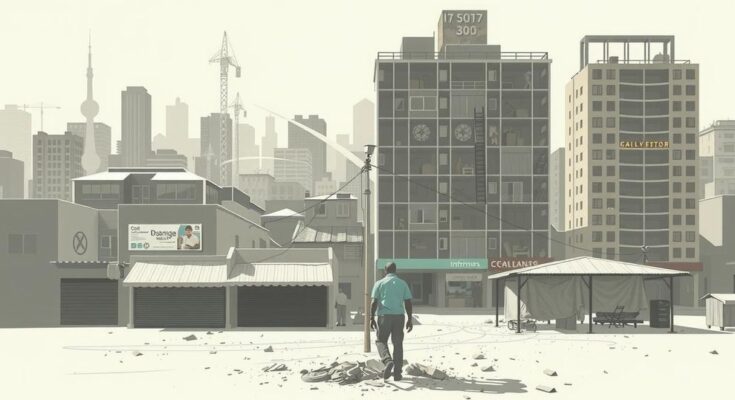Mozambique’s informal sector criticizes exclusion from a 10 billion meticais credit line aimed at recovery post-protests. Representing around 45% of the GDP, traders argue that all have felt the effects of protests. Additionally, they face high loan interest rates, complicating access to credit, which requires company guarantees for eligibility.
The informal sector in Mozambique has expressed strong discontent over its exclusion from the 10 billion meticais credit line established for recovery following the post-electoral protests. Traders within this sector argue that excluding them is unjust, as the fallout from the protests has negatively affected all segments of society. Given that the informal sector constitutes approximately 45% of the national GDP, its concerns are significant and warrant consideration.
A representative of the informal sector commented, “If it does not cover them, it is discrimination. The protests covered everyone; no one escaped. So, in my opinion, it was important to cover the informal sector. At the end of the day, those who carry out a visible activity that has a direct impact on the consumer are the informal sector.” This sentiment underscores the belief that all sectors should share in the recovery efforts.
Additionally, informal workers have voiced their concerns regarding high interest rates on loans, indicating that these financial conditions further complicate the existing challenges in their business environment. To qualify for the credit, which will be accessible from March 1 to September 30, banks require guarantees from companies, thus creating additional barriers for informal workers seeking financial assistance.
In conclusion, the exclusion of the informal sector from the recovery credit line has raised significant concerns regarding discrimination and equity in addressing the impacts of recent protests. With a substantial contribution to the national economy, the informal sector’s inclusion is deemed essential for a fair recovery process. The high interest rates on loans further complicate their situation, emphasizing the need for more supportive financial policies.
Original Source: clubofmozambique.com




